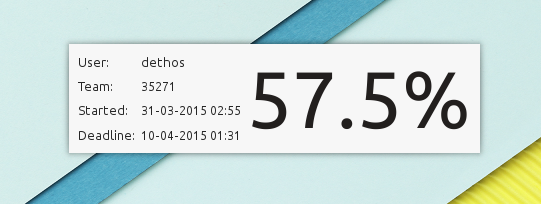Recently I’ve started “folding” again, to give a small contribution to science and research on important topics such as Alzeimer’s disease among others (as the above video shows). After 2 previous failed attempts (the old computer could not handle it), I’m currently on my longest streak and have just completed the first 100 work units. I know that many people would like to contribute to a project like this but simply don’t know of its existence. So sharing is important.
With almost 15 years, the project continues to thrive and the performance of the overall system continues to grow, mostly pushed by the advances of technology, because the participation, as Wikipedia shows, is far from its peak of 450k processors in 2011. During its existence the team responsible for the project was able to publish 118 scientific papers, based on the results obtained by the collaborative work done by all personal computers that joined the network. It is a visible amount of work that is certainly important in humanity’s continuous fight against these diseases.
The project maintains a leaderboard with stats of its users and teams, making it somewhat fun to see your performance and to compare with others (Portuguese fellows come on and join the team). Contributing is relatively easy and cheap, so i challenge you to start. If you have interest to know what kind of work is being done at the moment throughout the network, the project publishes that information in their website.
To make it easier to see your progress without having to open other programs or websites, I’ve made a simple plasmoid to give you that information.

So if you are a KDE4 user (one version for Plasma 5 is coming out of the oven soon) you can get it here. It isn’t complete yet, since I’ve done it quickly while learning about KDE development, but it is usable.